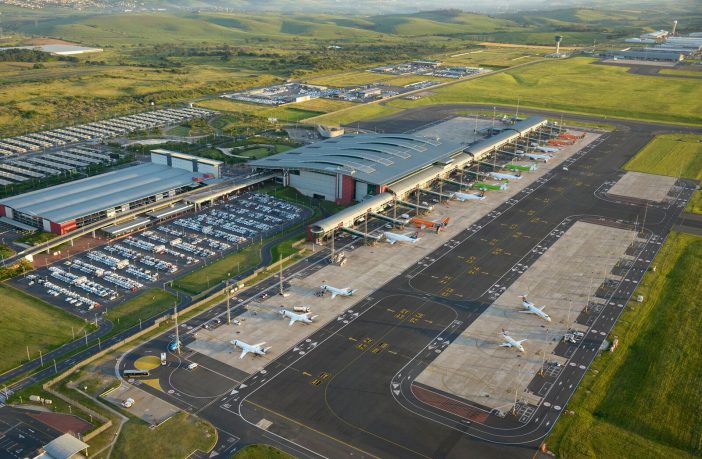- Currently, Emirates, Qatar Airways, Turkish Airlines, Air Mauritius, Pro-flight Zambia and Airlink all provide direct international air connectivity to and from King Shaka International Airport.
- British Airways will now also include Durban on its direct service.
- Introducing new passenger flights previously has also shown a 25% hike in cargo volumes.
- The added passenger/tourism traffic has great spinoffs for the proposed new international beach resort on the KwaZulu-Natal north coast by Tongaat Hulett Developments.
- The new development will maximise local participation and job creation, particularly among lower-level skilled people.
Tourism into markets where airlines establish direct flights historically experience a 30-40% growth within the first year of the route’s establishment, according to research released by Dube TradePort (DTP).
The news comes as Durban welcomed three weekly direct British Airways (BA) flights per week into King Shaka International Airport from October with the city making its inaugural appearance on the airline’s Top 19 Must-See Destinations for 2019.
BA announced earlier this year that it would include Durban on its direct service as the airline rolled out a ₤4.5 billion five-year customer investment plan. The service will complement Durban’s growing connectivity to global hub airports and the route will be serviced by the airline’s newest aircraft, the Boeing 787-8 Dreamliner.
Currently, Emirates, Qatar Airways, Turkish Airlines, Air Mauritius, Pro-flight Zambia and Airlink all provide direct international air connectivity to and from King Shaka International Airport.
Earlier this year KwaZulu-Natal economic development, tourism and environmental affairs MEC Sihle Zikalala said international cargo routed through the Dube Cargo Terminal had experienced continuous year-on-year growth since 2010, translating into a 138% hike in volumes.
Introducing new passenger flights previously has shown a 25% hike in cargo volumes, and it is expected that the introduction of the direct BA flight will provide additional bi-directional capacity of approximately 20 tons per flight, into the key markets for cargo into and out of KZN.
In breaking the news, BA chairman and CEO Álex Cruz said Durban’s warm water, hot summers and laid-back atmosphere made the coastal city “the perfect holiday destination” and a gateway to nature reserves, parks and historic sites.
DTP CEO Hamish Erskine says since Dubai-based airline Emirates began flying directly into Durban, passenger figures have grown significantly. Currently more than 60% of the market leaving Durban wants to travel directly from the city. “The market is telling us business and tourist travellers in Durban want to be able to fly from King Shaka International Airport and not have to be routed via OR Tambo in Gauteng,” he says.
Endorsing Erskine’s comments, Tourism KwaZulu-Natal CEO Phindile Makwakwa says the movement of people fosters the movement of capital, effectively boosting the economy. However, when people travel, the ease of connectivity is a key priority to their destination decision and direct links make packaging and selling Durban an easier task.
Tongaat Hulett Developments planning director Rory Wilkinson, who sits on the Route Development Committee which is responsible for developing direct international air connectivity for King Shaka International Airport, says the new route between Heathrow and King Shaka is a significant leap forward not only for the tourism sector, but also as a catalyst for propelling foreign direct investment and improving business connectivity between the two countries as well as with Europe.
Wilkinson says tourism attractions like the proposed new international beach resort on the KwaZulu-Natal north coast by Tongaat Hulett Developments will maximise local participation and job creation, particularly among lower-level skilled people. However, underpinning these types of investments is the ability to attract international tourists via direct flights.
“This is what Durban can achieve – we are putting ourselves on the map and there is the potential to stimulate the market to grow 30-40% in the early years of the operation, but Durban must embrace the power of connectivity,” Wilkinson says.
Author: Bryan Groenendaal















